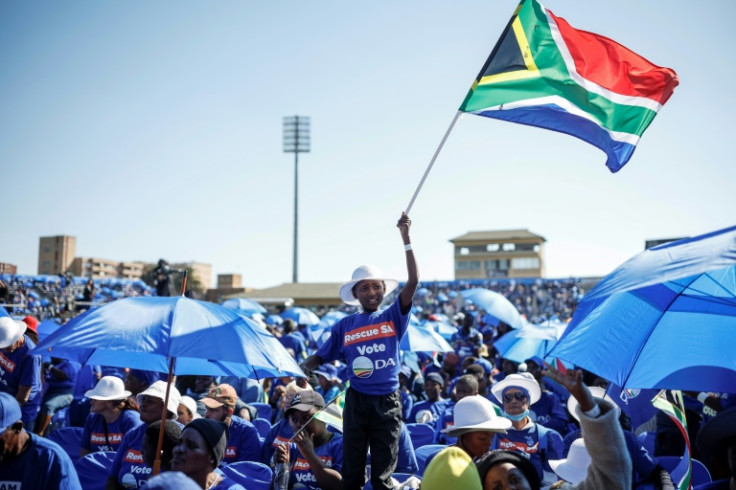South Africa's National Unity Government Consists Of 5 Parties: ANC

The African National Congress (ANC) announced on Monday that South Africa's new government includes five parties so far, adding that there are ongoing discussions with additional parties.
South Africa witnessed elections last month and ANC had to form alliances with other political parties as the party individually couldn't secure majority votes for the first time since the 1994 election that ended apartheid.
ANC leader Cyril Ramaphosa was re-elected as South Africa's president by parliament last week. His party gained support from its biggest rival Democratic Alliance along with two smaller parties: the socially conservative Inkatha Freedom Party and the right-wing Patriotic Alliance.
In the Monday announcement, the ANC said that another smaller party called GOOD has also joined the unity government agreement.
The ANC highlighted that the coalition now holds 273 seats in the 400-seat National Assembly, accounting for 68% of the total. In the recent election, the ANC secured 159 seats, making it the largest party.
Whereas, the Democratic Alliance (DA) follows with 87 seats while the Inkatha Freedom Party (IFP) holds 17 seats, the Patriotic Alliance (PA) has 9 seats and GOOD has one seat. The five political parties have officially signed a statement of intent to participate in a government of national unity (GNU).
The unity government will ensure that all participating parties have a voice in decision-making, making decisions through consensus, according to the ANC.
The priorities of the unity government include a focus on rapid, inclusive and sustainable economic growth, the promotion of fixed capital investment, job creation, land reform and infrastructure development.
"Our objective is to create a just society that addresses poverty, spatial inequalities, food security, and the high cost of living while protecting workers' rights and delivering quality basic services," ANC said, CGTN reported.
The Marxist Economic Freedom Fighters party that secured 39 seats during the elections said it will not be a part of the unity government. Furthermore, the uMkhonto we Sizwe party, led by former President Jacob Zuma, with 58 seats also said it won't be a part of this new government formation.
"With populist parties choosing to reject the GNU [government of national unity], and the ANC's bigger partners in the governing coalition center-leaning and favoring more liberal economic policies, we think the GNU opens the possibility for more growth-friendly structural reforms and prudent macroeconomic policy choices," HSBC economist David Faulkner said, Reuters reported.
He added, "But the GNU could also face ideological divisions and exacerbate fractures within the ANC, factors that could make establishing a stable policy framework difficult."
© Copyright 2025 IBTimes ZA. All rights reserved.





















